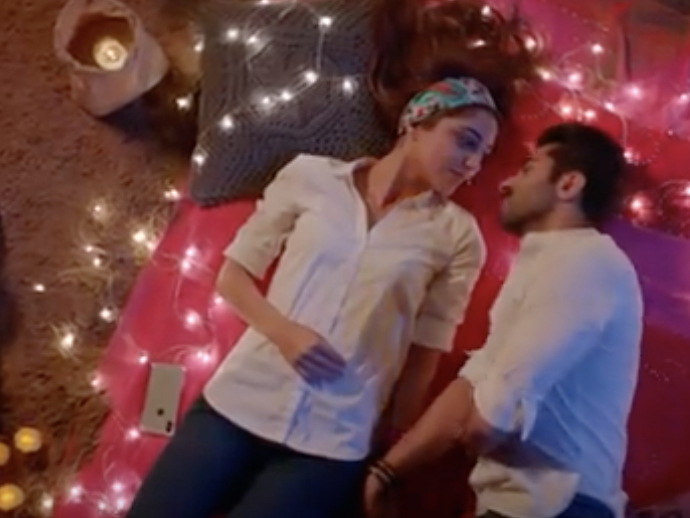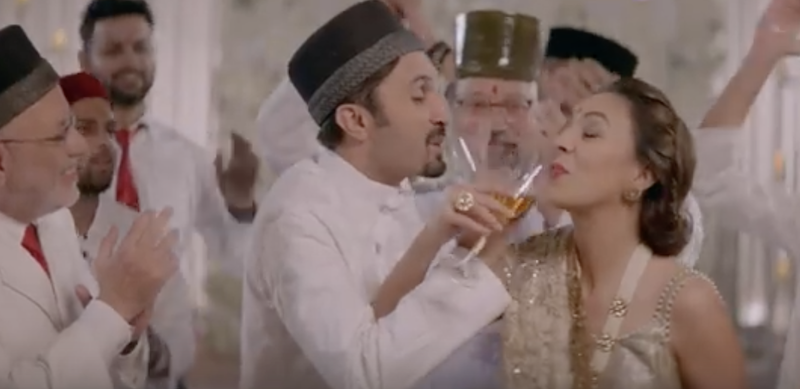“Don’t teach people how to live,†a greasy looking Fawad Khan, in the character of a famous TV drama producer, tells Sheheryar before throwing him out for wasting his time. “Show them how to have a good time!†And that’s exactly what Asim Raza does as he lifts the curtain on Parey Hut Love, a film that aims to delight the senses from the get go. The bonus, however, is the fact that there are life lessons tucked between the lines of this four-act film; you just don’t realize it. Like every brilliant work of art, Parey Hut Love too is not without greater purpose.
Written by Imran Aslam – whose love for theatre, words and wit comes to life in this vibrant story – Parey Hut Love is Asim Raza’s second feature film and one that not only puts him up there amongst Pakistan’s most coveted film directors, but it also elevates Pakistani cinema in every possible way.

Parey Hut Love is the story of Sheheryar (Sheheryar Munawar), a struggling actor who can’t catch a break and who wrestles with his past to the extent that it holds his entire life in a gridlock. He grapples in his relationship with his mother and half-dad, loses the love of his life to his commitment phobia and threatens to self-destruct at every possible juncture of his life. Narrated through four weddings and a funeral, PHL’s strength is derived from the elements that bring it together, from the characters and the actors that perform them to perfection, to the frames that appear to have been designed with the precision of an Old Master’s brush stroke, to the music that complements the narrative and the humour, that tickles one with wordplay.

One of PHL’s biggest strengths is its unapologetic love for aesthetic brilliance. This could be the entire cast – gorgeously studded in each frame – or the frame itself. That aerial shot over a rainy funeral in Kashmir (the timing couldn’t have been more perfect), that one scene shot in front of the majestic Derawar Fort in Bahawalpur, the picturization of the songs and of course, the wardrobe, created painstakingly by Umar Sayeed and Ismail Farid.
You have the script, you have the screenplay and you have the music (again, brilliance from Azaan Sami Khan; ‘Haye Dil Bechara’ is next level) but what delivers it with perfect panache is the actors. One has been worrying about the fate of the Pakistani film hero (until recently it seemed that most heroes were not, no offence, hero material) but Sheheryar Munawer delivers himself as a hero one certainly can fall in love with. Maya Ali, in a span of two films, has transitioned from television’s next door damsel in distress to film star with a devil-may-care attitude. She looks the part, moves the part and takes your hand and pulls you through a range of emotions, which is what great performance is all about. You want to laugh with Sania, dance with Sania, cry with her and by the end of it all, be like her. Film stars are essentially people you can fantasize about and Maya Ali certainly has stepped into orbit.

The supporting cast is just as pivotal. It’s impossible to not be entertained with Ahmed Ali Butt around and he catches Zara Noor Abbas in his halo. Her comic timing is perfect. That said, Zara – now two films old, having played somewhat similar comic roles in both – needs to shift gears before she is stereotyped as the next Bushra Ansari. Faheem Azam (who plays Rustom) is definitely someone we need to see more of. Intelligent and invested in his character, he brings a lot to the table. There’s Mahira Khan, beautiful and effective in her brief but memorable role. Hina Dilpazir is, as always, a natural as she plays Sheheryar’s ambitious mother and Nadeem, as Sania’s father, brings experience to the screen. His narration of Munir Niazi’s poignant ‘Hamesha Der Kar Deta Hoon Main’ brings back a love for literature; it’s not a tradition we get to see too often on the big screen and we do have Imran Aslam to thank for that.
Conclusively, Parey Hut Love is the grand Pakistani production that can be called the ‘coming of age’ of Pakistani cinema. It does raise the bar exponentially and sets standards that will now be difficult to match.
Rating: ****1/2





